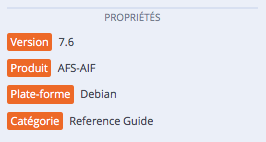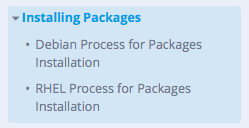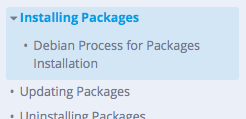We’re very excited to share today’s release with you. The new version of Fluid Topics delivers major improvements to the search experience. We’ve boosted the efficiency of information access by providing more knowledge objects in the unified search, the ability to preview content from within the search page, intelligent spell checker, and other features to improve the user experience
Version 2.6 also brings a very unique capability called Book Dynamic Filtering.
Documentation for Multiple Software Versions
Consider this case: a software vendor has its product available for on-premises installation in RedHat or Debian Linux distributions. Moreover, the product can be deployed on a single server or on multiple servers for horizontal scaling and high-availability. It can also use different database back-ends, such as relational or noSQL storage. With eight combinations available, the resulting documentation will include two options:
- Eight different manuals, published separately. This is costly to generate, especially with more options such as versions, it could include 30 or 40 documents. In addition, you have to ensure that users can easily find the right version.
- A single large manual that includes all information. Such a cumbersome manual will include a large number of subsections —“3.2.4.1 for Debian”, “3.2.4.2 for Redhat”, “3.2.1.1.1 single server”, “3.2.1.1.2 multiple server”— and multiple links. This sort of large catch-all manual is a potential source of errors, user mistakes and high support costs.
When searching for information, users may be offered facets for filtering and targeting the platform matching their situation.

When they rapidly spot the proper content, they click to open the manual and access the entire installation procedure.
But when users see that the book contains indications for all platforms and architectures, they can become frustrated knowing they have to struggle to find the proper content.
How Fluid Topics Book Dynamic Filtering Improves the User Experience
Book Dynamic Filtering solves this issue in the most elegant and efficient way. For example, facets that the user selects during the search phase are transmitted to the Fluid Topics embedded reader, which automatically filters the book accordingly.
The manual’s table of contents and its content looks as if it was generated specifically to match the user’s needs, with a property box displaying the active parameters.

All of these functions are performed dynamically in real time by Fluid Topics. You don’t have to worry about generating multiple books or fear that your users won’t find the exact version they need. That’s the magic of Fluid Topics: true dynamic publishing delivered.
Try out the latest update
For more information about the other features of version 2.6, see the release notes.
Try out the latest update and let us know what you think.







